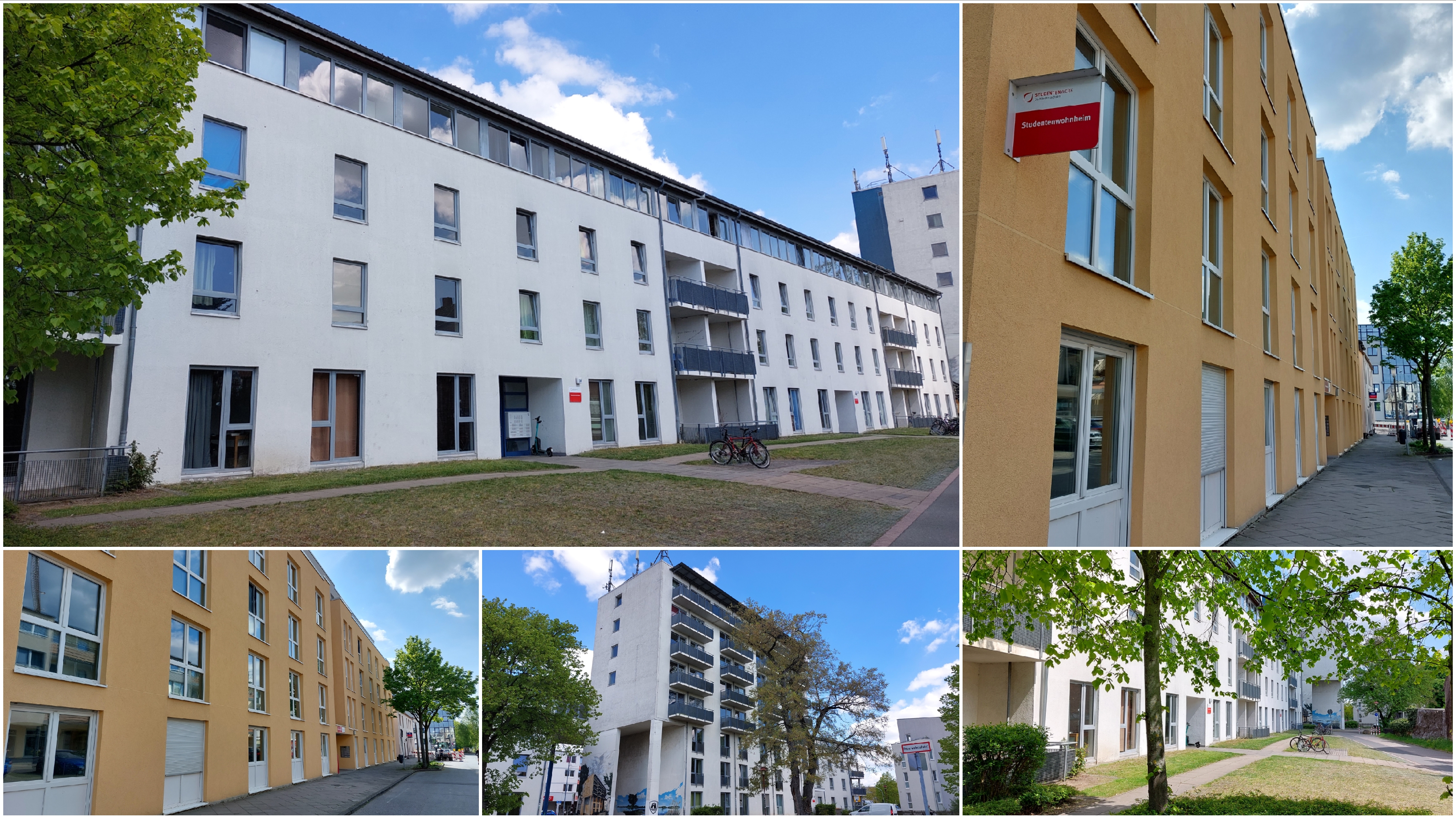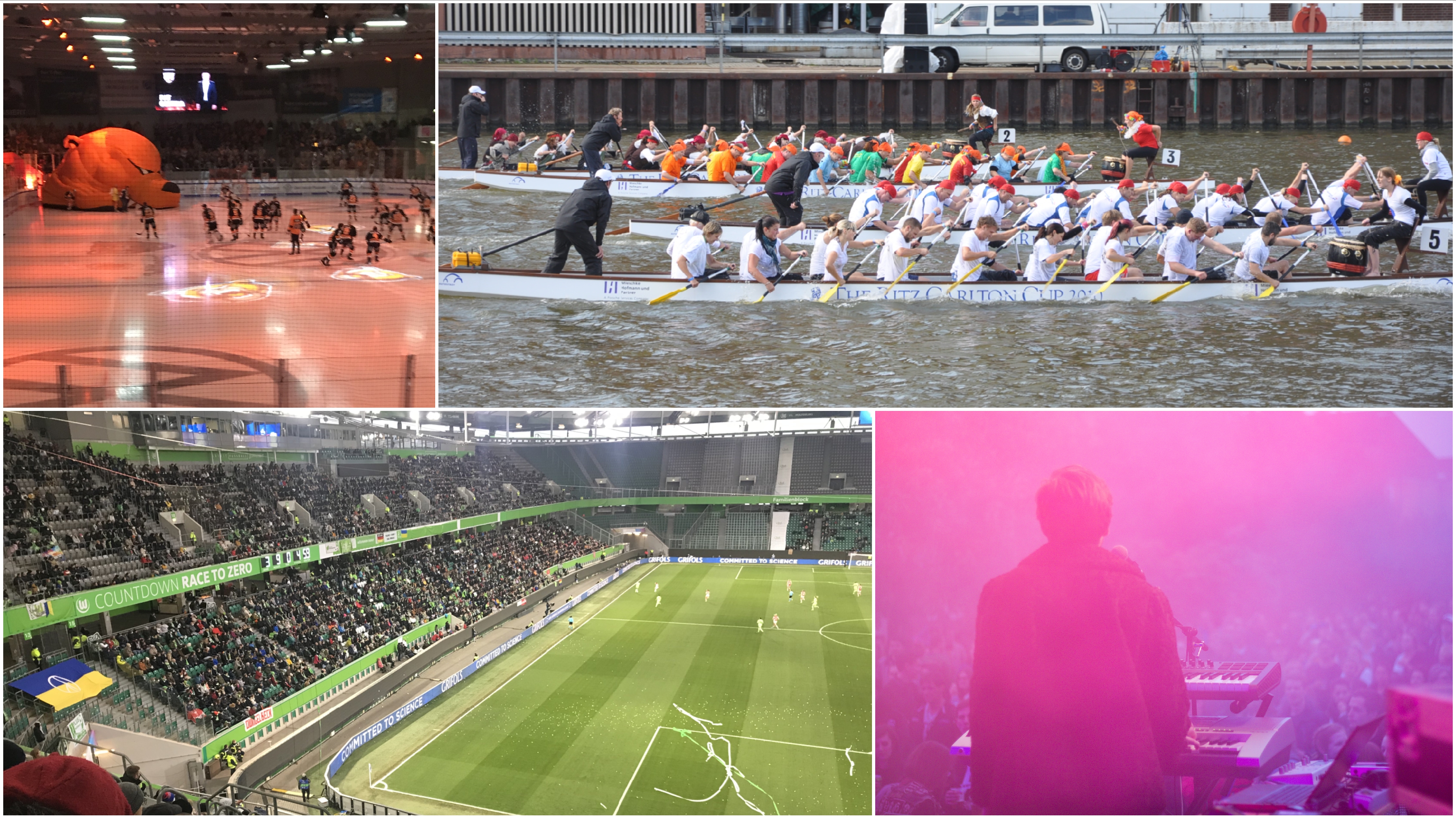 (c) E. Uta
(c) E. UtaWhen studying abroad at Ostfalia, you will most likely live in one of the two student residence halls available in Wolfsburg. Both student residence halls are within a 10 minute walking distance from the campus. You will receive an e-mail from the International Student Office about this arrangement, as well as a form about renting a mattress, sheets, a comforter, and towels. Although you can buy these items for your room on your own, the option to rent is very moderately priced and very convenient. If you choose to buy your own, there is an IKEA in a neighboring town (Braunschweig), but you will need a car to get there.
 (c) E. Uta
(c) E. UtaFor students with residence outside of the EU: Do not worry about getting health insurance before you come to Germany. There is mandatory insurance coverage that each student must get in Germany and you will arrange it upon your arrival under the instruction of the International Student Office.
For EU citizens: If you unexpectedly fall ill during a temporary stay in another EU country you are entitled to any medical treatment that cannot wait until you get home. However, you need to carry proof that you are insured in an EU country. For more information, please make sure to ask the international office in your home university or your health insurer.
For students with residence outside of the EU: Do not worry about getting health insurance before you come to Germany. There is mandatory insurance coverage that each student must get in Germany and you will arrange it upon your arrival under the instruction of the International Student Office.
For EU citizens: If you unexpectedly fall ill during a temporary stay in another EU country you are entitled to any medical treatment that cannot wait until you get home. However, you need to carry proof that you are insured in an EU country. For more information, please make sure to ask the international office in your home university or your health insurer.
Many students bring their lunch to school. There is a school cafeteria, but no meal plans are offered. Because Ostfalia is centrally located in Wolfsburg, there are many, reasonably priced restaurants within walking distance of the University.
Every student gets a student card that is used for printing, laundry, and transportation. This card can be used for the buses in Wolfsburg and for all regional trains in Lower Saxony. The pass is not valid with IC or ICE travel (high speed/long distance trains).
There are plenty of fun activities for students to partake in on the weekends and evenings in Wolfsburg. Some examples include: night bowling, rope obstacle courses, volleyball, activities around the Allersee, karaoke at a local Irish pub, and exploring the Autostadt, the Phaeno, or the Art Museum. You can also attend a soccer game and the Campus Open Air events.
 (c) E. Uta
(c) E. UtaEuropeans live a very healthy, active lifestyle. Walking, biking, and rollerblading are a part of everyday life. A fresh food market opens every Wednesday and Saturday morning in nearly every small town, including Wolfsburg, Braunschweig, Wolfenbüttel, and Celle. It is also important to know that Wolfsburg is a very safe city. For those interested in shopping, there is an outlet mall and a City-Gallerie shopping center within walking distance of the University. However, most shops are closed on Sundays, and Germans head to the park to enjoy the outdoors. The Pedestrian area is nice to walk around in, which has everything from banks, to groceries, to pharmacies, to clothing shops, to bakeries. NOTE: Most local establishments do not accept credit cards, so you will most likely open a German bank account upon arrival here and use cash for most purchases.
The following major cities are in Lower Saxony:
Braunschweig (20 mins)
Hannover (1 hour)
Celle (1.5 hour) and
Lüneburg (2 hours)
The following cities are close, but outside of Lower Saxony:
Bremen (2.5 hours)
Hamburg (2.5 hours)
Berlin (1 hour)
Frankfurt (3 hours)
Düsseldorf (3 hours)
Köln (3 hours)
Each student is required to take a German course during their study at Ostfalia. This course will give the students exposure to basic German phrases and essential lingo.
There is more interaction between professors and students in a typical Ostfalia classroom. Students participate and take part in classroom discussions on a regular basis, which helps the students apply what they are learning. The professors at Ostfalia have practical experience in addition to their educational background in their field of study. There is only one exam for each course at the end of the semester. Although you are not required to attend class, most Germans do because they must perform well on the one and only final exam. The course selection and the number of courses you decide to take are very flexible at Ostfalia. It is more important for you to meet your home University’s course requirements. 1 ETCS is the equivalent to 30 hours of semester work. Although group studying is becoming more and more popular, most Germans do their work and studying independently at home rather than in the library or at cafés.